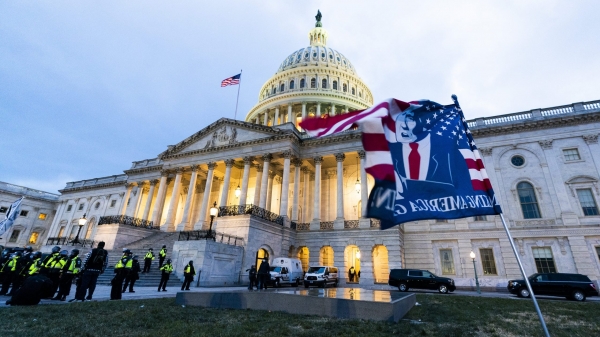By Brandon Moseley
Alabama Political Reporter
Congressman Spencer Bachus (R) from Vestavia announced in a written statement that the House Final Services Committee will be holding hearings throughout the month of July to examine the impact that the Dodd–Frank Wall Street Reform and Consumer Protection Act (H.R. 4173) was having on jobs, the economy, and consumers. Rep. Bachus is the Chairman of the House Financial Services Committee.
Chairman Bachus said, “Dodd-Frank was enacted in response to the financial crisis of 2008. The law was not intended to hinder the ability of American businesses to utilize the capital markets or to unduly hamper the ability of consumers and businesses to obtain credit, create jobs, mitigate risk, and thrive. Yet two years after its passage, many argue that Dodd-Frank is having precisely these negative effects.
Rep. Bachus continued, “Main Street businesses are now facing a constriction of both capital and credit. The derivatives rules, the Volcker Rule, and a host of other Dodd-Frank rules are putting enormous pressure on corporate balance sheets at a time when economic conditions are already putting increased demands on the time and resources of job creators.”
Congressman Bachus said the committee had passed H.R. 2682 to mitigate some of the potential negative impacts of the Dodd-Frank Act. Rep. Bachus said the H.R. 2682, “Would ensure the regulators do not force derivatives end-users to post margin, which would divert capital away from job creation.” Rep. Bachus lamented that, “The Senate has failed to act on this important bill and some regulators continue to interpret Dodd-Frank’s Title VII as a grant of new authority to impose costly margin requirements on end-users.”
Rep. Bachus said, “Similarly, an overly restrictive Volcker Rule will also have a negative impact on Main Street by increasing borrowing costs for consumers and companies both large and small. If businesses find it harder to borrow, it will be harder for them to make capital investments and create jobs; if consumers have less access to credit, it will be harder for them to care for their families; and if the value of the assets held by savers and investors declines, people will find it harder to save for a new home, for college or retirement.”
Congressman Bachus’s statement about the Dodd-Frank Act were made to mark the second anniversary of the signing on the 2,300-page law.
Republican Presidential Candidate, Mitt Romney said in a written statement on his website, “President Obama’s expansive agenda has brought the costs of excessive regulation into high-resolution focus. A number of his major initiatives like Dodd-Frank and Obamacare represent a quantum increase in the scale of the regulatory burden on the American economy.” Gov. Romney’s website promised that, “A Romney administration will act swiftly to tear down the vast edifice of regulations the Obama administration has imposed on the economy. It will also seek to make structural changes to the federal bureaucracy that ensure economic growth remains front and center when regulatory decisions are made.” “One of the greatest problems with the federal bureaucracy is that each incoming presidential administration leaves in place much of what its predecessor constructed. The result is layer upon layer of often unnecessary or inconsistent regulation. President Obama has compounded this problem with unprecedented federal power grabs over wide swaths of the economy. Obama-era laws and regulations must be rolled back, and pre-existing ones must be carefully scrutinized.” Gov. Romney is promising to repeal Obamacare and, “Repeal Dodd-Frank and replace with streamlined, modern regulatory framework.”
The Dodd-Frank Act was passed in 2010 when Nancy Pelosi (D) from California was the Speaker of the House and Rep. Barney Frank (D) from Massachusetts was the Chairman of the House Committee on Financial Services.






















































